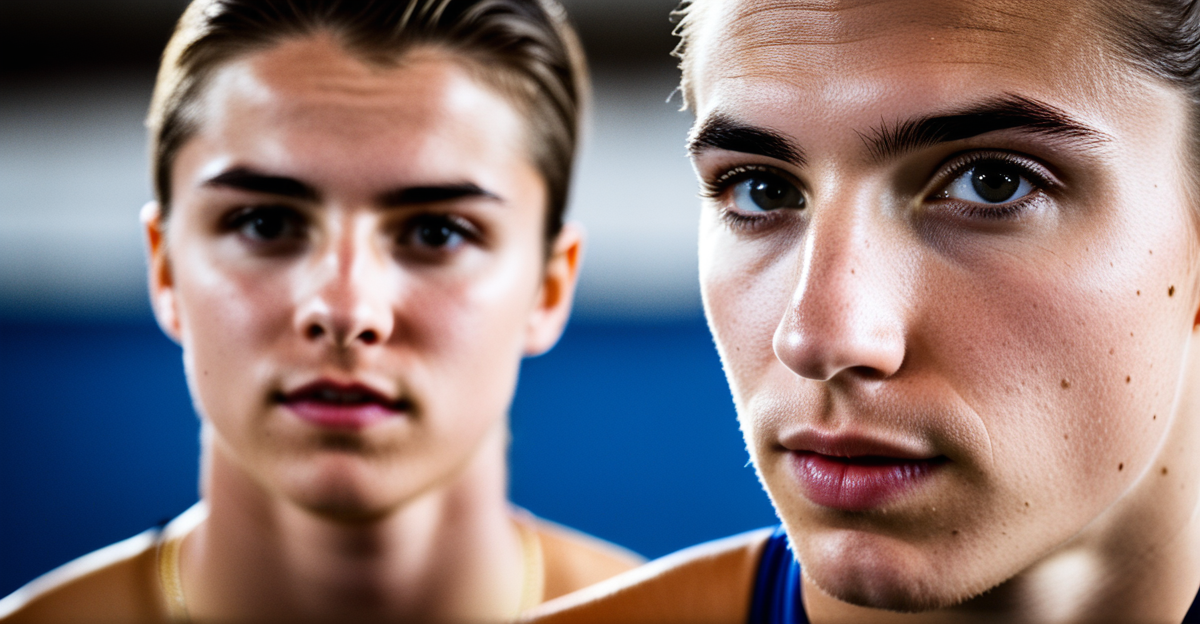Balancing Education and Training as a UK Athlete
Balancing UK student-athlete life demands a careful integration of rigorous academic obligations and intensive sports training. Typically, dual-career athletes in the UK dedicate multiple hours daily to training sessions, competitions, and recovery while simultaneously attending lectures, completing assignments, and revising for exams. This complex routine requires developing a balanced daily and weekly schedule to manage both roles effectively.
A well-structured plan prevents burnout, enhances performance, and supports overall wellbeing. For example, athletes often prioritise key academic deadlines around competition seasons, adjusting study hours accordingly. The ability to switch focus quickly between sport and study mitigates stress and maintains motivation.
In parallel : How Will New UK Sports Regulations Impact Athletes’ Performance?
The impact of juggling these dual commitments can be profound. Maintaining academic-sport balance contributes not only to athletic success but also to long-term career security beyond sport. Conversely, ignoring this balance risks mental fatigue, reduced performance, and compromised health. Understanding this dynamic equips UK student-athletes to thrive in both domains by fostering discipline, time management, and resilience. Such balance remains a cornerstone for dual-career athletes UK who seek sustainable progress.
Support Systems for Student-Athletes in the UK
Understanding the resources available to help balance dual commitments
Have you seen this : What Are the Psychological Benefits of Participating in UK Sports?
UK student-athlete life benefits significantly from sports scholarships UK, which provide financial aid easing the burden of tuition fees and living costs. These scholarships often come with tailored academic support for athletes, including specialized tutoring and flexible deadlines, allowing dual-career athletes UK to manage their workload without compromising performance.
Institutions also offer flexible degree programmes and distance learning options. Such arrangements allow student-athletes to adapt their academic schedules around training and competition periods more efficiently. This flexibility is crucial for maintaining a healthy academic-sport balance and reducing stress.
Beyond financial and academic assistance, the role of support personnel is essential. Coaches contribute by understanding individual student-athlete circumstances and tailoring training as needed. Academic advisors help balance coursework demands, while welfare officers focus on overall well-being, providing mental health resources and guidance. This comprehensive support fosters resilience, helping UK student-athletes meet dual demands confidently, promoting both academic success and athletic development.
Balancing Education and Training as a UK Athlete
Student-athletes in the UK face a demanding schedule that intertwines intense sports training with rigorous academic commitments. Typically, UK student-athlete life involves daily sessions of physical preparation alongside lectures, assignments, and exams. This duality requires dual-career athletes UK to cultivate a balanced daily and weekly schedule that allocates time effectively for both domains.
A carefully crafted timetable is essential. It prioritises important academic deadlines during less intensive competition phases and schedules focused training around study requirements. This strategic planning supports a sustainable academic-sport balance, preventing burnout and optimising both athletic and academic outcomes.
The impact of managing these dual roles stretches beyond immediate performance. Maintaining an effective balance promotes mental resilience, physical health, and motivation. Conversely, failing to manage this balance can cause fatigue, stress, and diminished results in both areas. Therefore, UK student-athlete life demands discipline and adaptability to navigate its complexities successfully, ensuring long-term growth in sport and education.
Balancing Education and Training as a UK Athlete
UK student-athlete life encompasses rigorous demands from both academic and athletic spheres. Dual-career athletes UK typically manage intense training sessions, competitions, and recovery, alongside attending lectures, completing coursework, and preparing for exams. The key to navigating these pressures lies in developing a balanced daily and weekly schedule tailored to individual needs.
A well-structured timetable accounts for fluctuations in training intensity and academic deadlines. For example, during competition peaks, athletes may prioritise lighter academic loads, while off-season periods allow for increased study focus. This strategic planning supports a sustainable academic-sport balance, preventing fatigue and improving overall performance.
The impact of juggling dual commitments extends beyond physical workload. Mental wellbeing can be challenged by constant role-switching and time constraints. Maintaining academic-sport balance enhances motivation and resilience, crucial traits for long-term success. Conversely, imbalance risks burnout, decreased performance, and health issues.
In essence, mastering this balance demands discipline, adaptability, and proactive time management. UK student-athlete life thrives when athletes integrate their academic and training responsibilities thoughtfully, ensuring they progress holistically in both realms.
Balancing Education and Training as a UK Athlete
Navigating UK student-athlete life means juggling demanding schedules that combine intensive training with academic responsibilities. Typically, dual-career athletes UK face early morning workouts, followed by lectures and study sessions, creating packed days that require careful time allocation. This complexity underscores the necessity of a balanced daily and weekly schedule.
An effective timetable ensures students allocate focused blocks for both training and study, adjusting for peaks in competition or exam periods. This balance helps maintain consistent progress in sports and academics without sacrificing wellbeing. For instance, during competition-heavy weeks, athletes might reduce study hours temporarily, shifting focus back during lighter training phases.
The impact of managing these dual commitments is significant. Successfully balancing roles enhances performance, supports mental resilience, and reduces stress, key for sustaining motivation over the season. Conversely, failing to maintain academic-sport balance risks burnout, lowered athletic output, and compromised grades. Awareness of these risks encourages dual-career athletes UK to develop discipline, flexibility, and strategic planning, ensuring they excel in both arenas confidently and healthily.
Balancing Education and Training as a UK Athlete
The UK student-athlete life demands managing diverse and time-consuming commitments. Dual-career athletes UK typically balance multiple intense training sessions daily with academic classes, assignment deadlines, and exam preparations. Such dual responsibilities require a carefully developed academic-sport balance, ensuring neither area is neglected.
Developing a balanced daily and weekly schedule is essential for these athletes. It involves allocating consistent time blocks for study and training, while adjusting workload intensity according to the competition calendar or academic deadlines. For example, during peak competition periods, athletes may reduce study hours, then compensate during off-season phases. This flexible yet structured plan helps maintain productivity and minimises stress.
The impact of managing these dual commitments is profound. Successful integration supports both physical performance and academic achievement by promoting mental resilience and preventing burnout. Conversely, failure to maintain a healthy academic-sport balance risks fatigue, reduced athletic output, and falling behind academically. Hence, discipline in scheduling and adaptability are vital for dual-career athletes UK to optimise performance and wellbeing across both fields.









